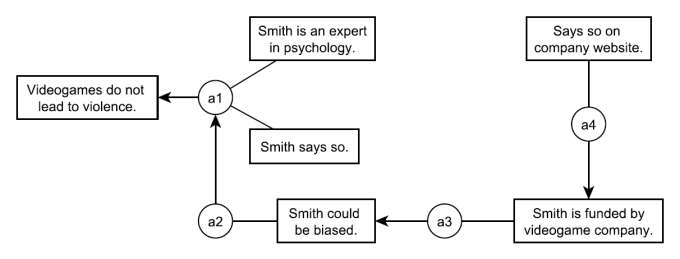Developing a line of argument
In an academic paper, an argument is the way in which you explain and develop your topic.
- A logical structure of your paper in which sometimes contradictory claims are discussed, and which enables the reader to follow, through signposting and headings, how you deal with the topic.
- Your critical analysis of existing literature from the viewpoint of your own experience and/or research.
- The development of your own stance, based on your literature review and your own experience/research.
Argument
Within your main line of reasoning/argument, are individual arguments.
This can be defined as “using reasons to support a point of view, so that known or unknown audiences may be persuaded to agree. An argument may include disagreement but is more than simply disagreement if it is based on reasons” (Cottrell, 2011, 52).
Planning your argument

- Try drawing your line of argument on paper to see how logical it looks
- Try putting your main points in a different order to see how it affects the line of argument
- Plan what will go where
What an argument isn't
An argument should not be confused with…
Position: It is an opinion. If there are no reasons it is not an argument
Agreement: Again, not an argument if there are no reasons
Disagreement: As above, simply to disagree with no reasons is not an argument
Description: An account of what something is like
Explanation: Why something is the way it is
Summary: Reduced version of longer text
References
- Cottrell, S. (2011) Critical thinking skills [ebook], 2nd edition. Basingstoke: Palgrave Macmillan.